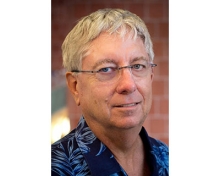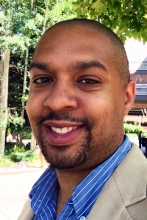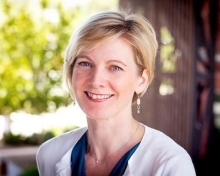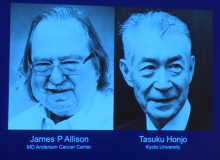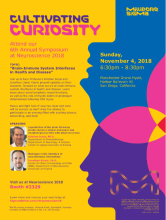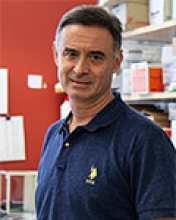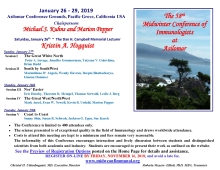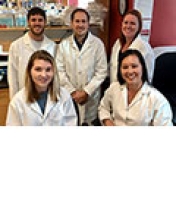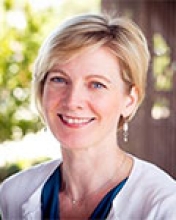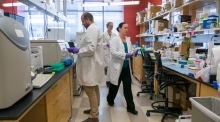News
Jeffrey Frelinger, PhD, has received the highest honor bestowed by the American Association of Immunologists.
While antibiotic resistance is on the rise, pharmaceutical companies are making fewer and fewer new antibiotics. UA immunobiologist Michael Johnson says this trend is in urgent need of reversal and believes copper might just be the key.
Felicia Goodrum, PhD, is one of only 109 scientists worldwide to receive the distinction this year.
Felicia Goodrum has been awarded more than $13 million in grants within the last year to fund her research on CMV, a virus that affects more than half of the global population above the age of 40.
"Dr. Kristian Doyle and Dr. Jonathan Kipnis have been invited as key speakers at the "Brain-Immune System Interfaces in Health and Disease" Symposium at this year's Society for Neuroscience in November."
Researchers at the University of Arizona College of Medicine – Tucson will study why the elderly suffer disproportionately from the emerging mosquito-borne virus.
January 26– 29, 2019, Asilomar Conference Grounds, Pacific Grove (Monterey) California Chairpersons: Michael S. Kuhns and Marion Pepper
Lifelong cytomegalovirus infection may be beneficial, boosting the immune system in old age, when we need it most, according to a study led by University of Arizona researchers published in the Proceedings of the National Academy of Sciences.
The three-year Arizona Biomedical Research Commission Awards will fund research relating to neuropathic and cancer pain, migraines, opioids, antibiotics, antivirals, sinusitis, obesity, diabetes, Parkinson’s disease, pulmonary disease and pediatric acute-onset neuropsychiatric syndrome.
Researchers at the University of Arizona College of Medicine – Tucson suggest liquefied brain fluid may be one cause of dementia after stroke.
Dr. Felicia Goodrum and several of the nation’s most prominent human cytomegalovirus researchers have been awarded a five-year, $8.9 million collaborative grant to investigate how the virus lies dormant until it activates and poses life-threatening disease risk.


